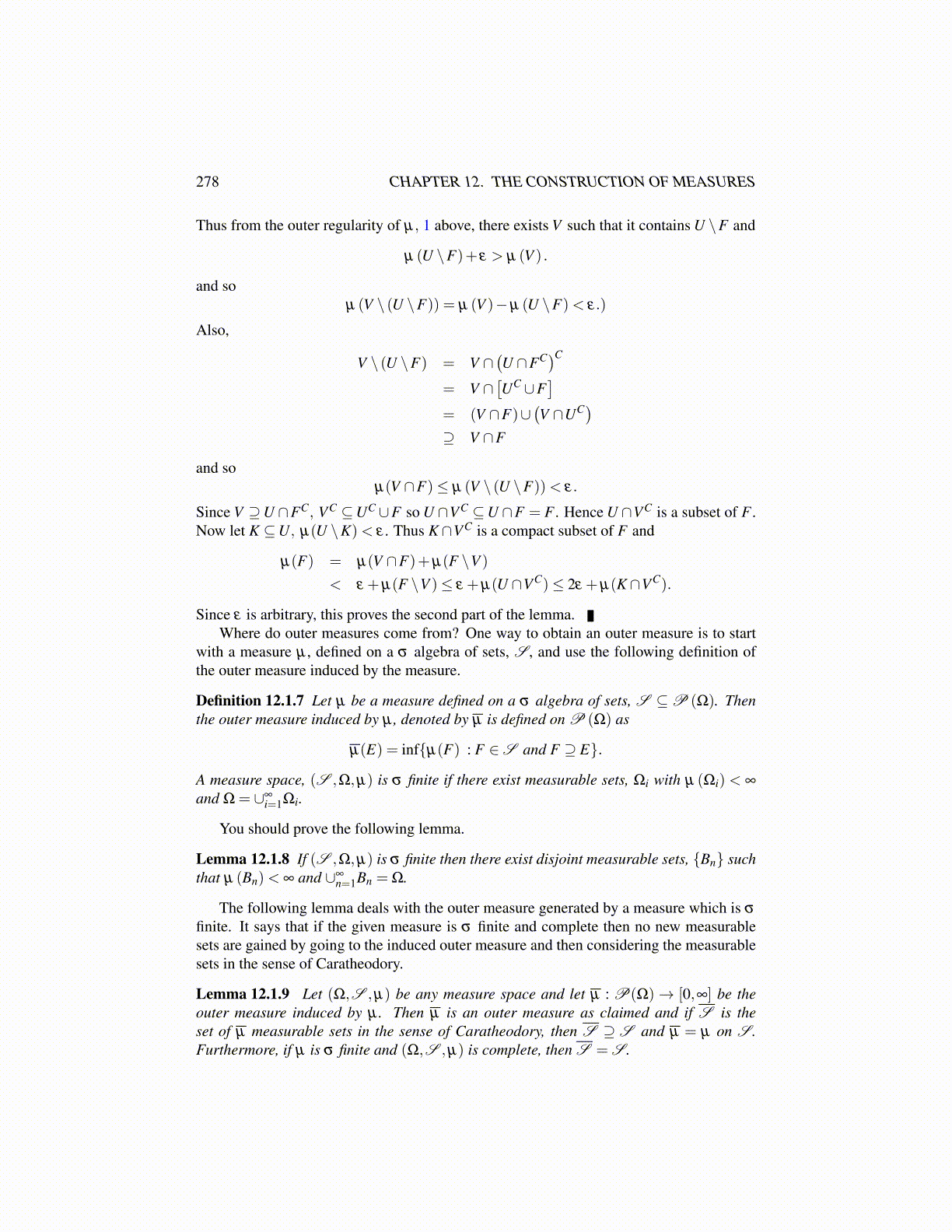
278 CHAPTER 12. THE CONSTRUCTION OF MEASURES
Thus from the outer regularity of µ, 1 above, there exists V such that it contains U \F and
µ (U \F)+ ε > µ (V ) .
and soµ (V \ (U \F)) = µ (V )−µ (U \F)< ε.)
Also,
V \ (U \F) = V ∩(U ∩FC)C
= V ∩[UC ∪F
]= (V ∩F)∪
(V ∩UC)
⊇ V ∩F
and soµ(V ∩F)≤ µ (V \ (U \F))< ε.
Since V ⊇U ∩FC, VC ⊆UC ∪F so U ∩VC ⊆U ∩F = F . Hence U ∩VC is a subset of F .Now let K ⊆U, µ(U \K)< ε . Thus K∩VC is a compact subset of F and
µ(F) = µ(V ∩F)+µ(F \V )
< ε +µ(F \V )≤ ε +µ(U ∩VC)≤ 2ε +µ(K∩VC).
Since ε is arbitrary, this proves the second part of the lemma.Where do outer measures come from? One way to obtain an outer measure is to start
with a measure µ , defined on a σ algebra of sets, S , and use the following definition ofthe outer measure induced by the measure.
Definition 12.1.7 Let µ be a measure defined on a σ algebra of sets, S ⊆P (Ω). Thenthe outer measure induced by µ , denoted by µ is defined on P (Ω) as
µ(E) = inf{µ(F) : F ∈S and F ⊇ E}.
A measure space, (S ,Ω,µ) is σ finite if there exist measurable sets, Ωi with µ (Ωi) < ∞
and Ω = ∪∞i=1Ωi.
You should prove the following lemma.
Lemma 12.1.8 If (S ,Ω,µ) is σ finite then there exist disjoint measurable sets, {Bn} suchthat µ (Bn)< ∞ and ∪∞
n=1Bn = Ω.
The following lemma deals with the outer measure generated by a measure which is σ
finite. It says that if the given measure is σ finite and complete then no new measurablesets are gained by going to the induced outer measure and then considering the measurablesets in the sense of Caratheodory.
Lemma 12.1.9 Let (Ω,S ,µ) be any measure space and let µ : P(Ω)→ [0,∞] be theouter measure induced by µ . Then µ is an outer measure as claimed and if S is theset of µ measurable sets in the sense of Caratheodory, then S ⊇ S and µ = µ on S .Furthermore, if µ is σ finite and (Ω,S ,µ) is complete, then S = S .